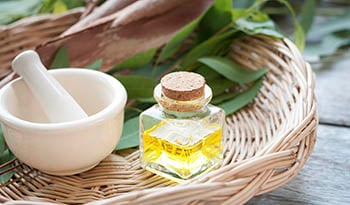Joint Health: Best Supplements for Pain Relief, Cartilage Repair, + Inflammation

Summary
Supporting the joints through proper nutrition and care is essential for maintaining their function and preventing movement impairments or discomfort.
- As a preventative step foundational supplements like a multivitamin and mineral formula, D3, omega-3 fatty acids, collagen peptides, and procyanidolic oligomer extract (PCO) may help.
- If joints are under stress, glucosamine sulfate (GS) can provide extra protection; studies show it significantly benefits knee health in soccer players.
- When more support is needed, glucosamine sulfate or natural eggshell membrane are excellent choices, and MSM can enhance their effects.
- PEA offers additional benefits in chronic joint discomfort cases, while curcumin or bromelain can help with inflammation.
Causes Of Joint Pain
Overuse
Joint health reflects the ability of structures like cartilage, tendons, and ligaments to perform their roles in the function of the joint. Joints are the places where your bones meet that help hold the skeleton together as well as give it mobility. Because of these dual functions, the joints are under a lot of mechanical stress and wear and tear from decades of use and inadequate repair is inevitable. Poor joint health can lead to strains, sprains, and inflammation.
Loss of Cartilage
The main cause of poor joint health is the loss of cartilage, the shock-absorbing material that prevents bones from rubbing together. This cartilage loss primarily results from the degenerative “wear-and-tear” of aging and inadequate regeneration, often due to a lack of essential nutrients. Being overweight also contributes to increasing stress on weight-bearing joints, accelerating the breakdown of joint structures, particularly cartilage. Without sufficient cartilage, bones rub against each other, leading to pain, deformity, inflammation, and limited joint motion.
Aging & Poor Nutrition
Aging is also a factor because as we get older the ability to restore and manufacture normal cartilage structures decreases. Often this inability to restore collagen as a person gets older is related to nutritional factors.
This article will classify the best supplements for joint health in three separate ways:
- Foundational Supplements
- Supplements for Cartilage and Joint Repair
- Supplements for Pain, Inflammation, and Sports Injuries
Foods For Joint Health
A diet rich in fruits and vegetables is important to joint health because natural plant compounds can protect against joint damage. Foods especially beneficial are flavonoid-rich fruits, such as cherries, blueberries, blackberries, and strawberries. Also important are sulfur-containing foods, such as garlic, onions, brussels sprouts, and cabbage. Collagen peptides, bone broth, and gelatin are also helpful as they provide the building blocks of joint structures.
Foundational Joint Health Supplements
In terms of foundational dietary supplements for joint health, there are five that are key.
Multivitamin
A high potency multivitamin provides at least the Recommended Dietary Allowance (RDA) of all vitamins and minerals. Your body needs vitamins A, C, and B6, zinc, copper, selenium, and boron to make and maintain cartilage. Lack of any of these may speed up the loss of cartilage, while optimal levels promote cartilage repair and synthesis.1
Vitamin D
Vitamin D3 at a dosage of 2,000-5,000 IU/day. Vitamin D3 plays a role in maintaining chondrocyte function (the cells responsible for producing cartilage in joints), which may help prevent cartilage degradation.2
Omgea-3s
Omega-3 fatty acids from a high-quality fish or algal oil. The dosage is based upon the level of the omega-3 fatty acids EPA+DHA to provide 1,000 to 2,000 mg/day. Numerous studies show omega-3 fatty acid supplementation can promote joint health and reduce joint discomfort as well as help protect joints during and after exercise.3-5
Pine Bark Extract
Pine Bark or Grape Seed Extracts provide flavonoids known as procyanidolic oligomers (PCOs), which at dosages of 150 to 200 mg per day have shown beneficial effects on joint health by reducing inflammation and supporting connective tissue structures that compose joint tissue.6,7
Collagen
Collagen Peptides at a dosage of 2,000 to 5,000 mg daily provide the building blocks for collagen, the most abundant protein in the body and the main component of all joint tissues (i.e., cartilage, tendons, ligaments, cartilage, and bone). Supplementation with collagen peptides has been shown to produce considerable benefits in promoting improved joint health, especially in active adults.8,9
Cartilage and Joint Repair Supplements
Several dietary supplements exist with significant scientific support in promoting cartilage health and joint repair. Choose one or more of the following best supplements in addition to the foundational supplements above for this health benefit.
Glucosamine Sulfate
Glucosamine sulfate stimulates the manufacture of molecules known as glycosaminoglycans (GAGs), key structural components of cartilage. Glucosamine also promotes the incorporation of sulfur into cartilage. Because of this effect, glucosamine sulfate (GS) is the best source of glucosamine compared to glucosamine hydrochloride.
The use of GS alone to support joint health has significant support in the medical literature. Numerous double-blind studies have shown GS to produce positive results in improving joint health and symptoms such as pain, and reduced range of motion. In long-term studies, subjects taking 1,500 mg GS daily for 3 years were shown to not only improve joint symptoms but also x-ray showed that GS supplementation preserved cartilage while those on the placebo were shown to have progressive joint-space narrowing indicating further degeneration of cartilage. 10-12
The standard dosage for GS is 1,500 mg/day and better results are seen when it is given all at once as a single dosage with results becoming most apparent after two to four weeks of use or longer. People that are obese, athletes, and other people who put more wear and tear stress on their joints may need to increase the dosage to 3,000 mg per day to see benefits.
Some products combine glucosamine with chrondroitin sulfate (CS). While glucosamine is a small, easily absorbed molecule, CS is a large, difficult-to-absorb molecule. Results with CS alone are not as strong as GS alone. The combination has been shown to be helpful. CS may add to some of the benefits of glucosamine due to the absorption of sulfur or smaller units of the larger CS molecule that have been broken down in the digestive tract.
MSM (methyl-sulfonyl-methane)
MSM (methyl-sulfonyl-methane) is the major form of sulfur in the human body and a popular dietary supplement for joint health. Sulfur is an especially important nutrient for joint tissue where it functions in stabalizing the connective tissue matrix of cartilage, tendons, and ligaments. Clinical studies have validated the benefits of MSM in improving joint health and better results have been observed when glucosamine supplementation is combined with MSM.13 Dosage for MSM is 1,200 to 2,000 mg per day.
Natural Eggshell Membrane
Natural Eggshell Membrane (NEM) supplies collagen, hyaluronic acid (HA), and other connective tissue components. Recent studies show that NEM brings faster relief to people suffering from pain, stiffness, and impaired mobility compared to GS. For example, NEM reduced pain by an average of 72% and improved flexibility by 44%, without side effects in one clinical trial. Rather than simply supply collagen, it is thought that NEM boosts the internal production of critical joint molecules like type 2 collagen and glycosaminoglycans (GAGs), including chondroitin sulfate. GAGs are an important component of cartilage, providing resistance to compression and contributing to the tensile strength of cartilage, tendons, and ligaments.14-16
Joint Pain, Inflammation, Sports Injury Supplements
The joints are vulnerable to overuse and injury, both of which can lead to inflammation and pain. Here are the best supplements for pain, inflammation, and sports injury,
PEA
Palmitoylethanolamide (PEA) is a fatty substance produced in the body as well as found in organ meats, chicken egg yolk, olive oil, safflower and soy lecithin, and peanuts. PEA works on central control mechanisms within our cells to help balance the inflammatory response and reduce cellular stress. These extremely beneficial effects have been demonstrated in over 600 scientific investigations including showing benefits in low back pain, temporomandibular joint (TMJ) pain, and knee pain.19-21
While everyone needing joint support should use collagen peptides, glucosamine sulfate, natural eggshell membrane, or some other supplement that supports the building of cartilage, for those requiring further relief from joint discomfort, PEA is a strong consideration. One recent study with PEA involved 111 subjects with joint discomfort in the knee.21 These subjects were randomized to take 300 mg PEA, 600 mg PEA, or placebo each day for 8 weeks. In the groups getting PEA, there was a significant reduction in the total symptom scores for joint discomfort in the knee as well as the individual scores for pain and stiffness. While the 300 mg per day dosage was effective, the 600 mg per day dosage was even more so. Given its lack of side effects, a higher dosage is recommended. PEA does take some time, usually two to four weeks, so it is best used in chronic cases as opposed to an injury.
Turmeric
Curcumin is the yellow pigment of turmeric (Curcuma longa), the chief ingredient in curry – and one of the most intensely studied natural products available today. As of 2024, more than 10,000 scientific studies have been conducted focusing on curcumin. Its primary health benefits to joints are due to its profound ability to balance the inflammatory response. It is the best supplement if joints are affected by significant inflammation.
Two of the most clinically studied curcumin products on the market, Theracurmin® (at 180 mg per day) and Meriva® (at 1,000 mg per day) have shown the most consistent and meaningful benefits in human clinical studies. Both these forms produce enhanced absorption of curcumin, which is usually poorly absorbed. Improvements noted in these studies with enhanced forms of curcumin include improvements in joint discomfort and mobility scores.22,23
Bromelain
Bromelain refers to a group of sulfur-containing “proteolytic” enzymes that digest protein obtained from the stem of the pineapple plant (Ananas comusus). While bromelain can be helpful as a digestive aid, it has been used primarily to help support recovery from injury, sprains, strains, tendonitis, and physical trauma. Bromelain is also helpful in chronic joint issues by protecting the health of cartilage. Human clinical studies have shown that bromelain can produce improvement in joint function and feelings of discomfort. Bromelain works primarily by indirectly blocking the formation of pro-inflammatory compounds as well as substances that promote pain, swelling, inflammation, and scar formation.24-27
When used for its joint health benefits, bromelain is best taken on an empty stomach 30 minutes before or between meals.
References:
- Messina OD, Vidal Wilman M, Vidal Neira LF. Nutrition, osteoarthritis and cartilage metabolism. Aging Clin Exp Res. 2019 Jun;31(6):807-813.
- Garfinkel RJ, Dilisio MF, Agrawal DK. Vitamin D and Its Effects on Articular Cartilage and Osteoarthritis. Orthop J Sports Med. 2017 Jun 20;5(6):2325967117711376.
- Deng W, Yi Z, Yin E, et al. Effect of omega-3 polyunsaturated fatty acids supplementation for patients with osteoarthritis: a meta-analysis. J Orthop Surg Res. 2023 May 24;18(1):381.
- Chen H, Xiong R, Cheng J, Ye J, Qiu Y, Huang S, Li M, Liu Z, Pang J, Zhang X, Guo S, Li H, Zhu H. Effects and Mechanisms of Polyunsaturated Fatty Acids on Age-Related Musculoskeletal Diseases: Sarcopenia, Osteoporosis, and Osteoarthritis-A Narrative Review. Nutrients. 2024 Sep 16;16(18):3130.
- Thielecke F, Blannin A. Omega-3 Fatty Acids for Sport Performance-Are They Equally Beneficial for Athletes and Amateurs? A Narrative Review. Nutrients. 2020 Nov 30;12(12):3712.
- Rohdewald PJ. Review on Sustained Relief of Osteoarthritis Symptoms with a Proprietary Extract from Pine Bark, Pycnogenol. J Med Food. 2018 Jan;21(1):1-4.
- Wang K, Chen X, Chen Y, et al. Grape seed procyanidins suppress the apoptosis and senescence of chondrocytes and ameliorates osteoarthritis via the DPP4-Sirt1 pathway. Food Funct. 2020 Dec 1;11(12):10493-10505.
- Bongers CCWG, Ten Haaf DSM, Catoire M, et al. Effectiveness of collagen supplementation on pain scores in healthy individuals with self-reported knee pain: a randomized controlled trial. Appl Physiol Nutr Metab. 2020 Jul;45(7):793-800.
- Kviatkovsky SA, Hickner RC, Cabre HE, Small SD, Ormsbee MJ. Collagen peptides supplementation improves function, pain, and physical and mental outcomes in active adults. J Int Soc Sports Nutr. 2023 Dec;20(1):2243252.
- Conrozier T, Lohse T. Glucosamine as a Treatment for Osteoarthritis: What If It's True? Front Pharmacol. 2022 Mar 17;13:820971.
- Knapik JJ, Pope R, Hoedebecke SS, et al. Effects of Oral Glucosamine Sulfate on Osteoarthritis-Related Pain and Joint-Space Changes: Systematic Review and Meta-Analysis. J Spec Oper Med. 2018 Winter;18(4):139-147.
- Bruyère O, Honvo G, Veronese N, et al. An updated algorithm recommendation for the management of knee osteoarthritis from the European Society for Clinical and Economic Aspects of Osteoporosis, Osteoarthritis and Musculoskeletal Diseases (ESCEO). Semin Arthritis Rheum. 2019 Dec;49(3):337-350.
- Lubis AMT, Siagian C, Wonggokusuma E, Marsetyo AF, Setyohadi B. Comparison of Glucosamine-Chondroitin Sulfate with and without Methylsulfonylmethane in Grade I-II Knee Osteoarthritis: A Double Blind Randomized Controlled Trial. Acta Med Indones. 2017 Apr;49(2):105-111.
- Hewlings S, Kalman D, Schneider LV. A Randomized, Double-Blind, Placebo-Controlled, Prospective Clinical Trial Evaluating Water-Soluble Chicken Eggshell Membrane for Improvement in Joint Health in Adults with Knee Osteoarthritis. J Med Food. 2019;22(9):875-884.
- Ruff KJ, Winkler A, Jackson RW, DeVore DP, Ritz BW. Eggshell membrane in the treatment of pain and stiffness from osteoarthritis of the knee: a randomized, multicenter, double-blind, placebo-controlled clinical study. Clin Rheumatol. 2009 Aug;28(8):907-14.
- Ruff KJ, Morrison D, Duncan SA, et al. Beneficial effects of natural eggshell membrane versus placebo in exercise-induced joint pain, stiffness, and cartilage turnover in healthy, postmenopausal women. Clin Interv Aging. 2018 Feb 19;13:285-295
- Marini I, Bartolucci ML, Bortolotti F, Gatto MR, Bonetti GA. Palmitoylethanolamide versus a nonsteroidal anti‐inflammatory drug in the treatment of temporomandibular joint inflammatory pain. J Orofac Pain 2012; 26: 99–104.
- Steels E, Venkatesh R, Steels E, Vitetta G, Vitetta L. A double-blind randomized placebo controlled study assessing safety, tolerability and efficacy of palmitoylethanolamide for symptoms of knee osteoarthritis. Inflammopharmacology. 2019;27(3):475-485.
- Petrosino S, Di Marzo V. The pharmacology of palmitoylethanolamide and first data on the therapeutic efficacy of some of its new formulations. Br J Pharmacol. 2017 Jun;174(11):1349-1365.
- Marini I, Bartolucci ML, Bortolotti F, Gatto MR, Bonetti GA. Palmitoylethanolamide versus a nonsteroidal anti‐inflammatory drug in the treatment of temporomandibular joint inflammatory pain. J Orofac Pain 2012; 26: 99–104.
- Steels E, Venkatesh R, Steels E, Vitetta G, Vitetta L. A double-blind randomized placebo controlled study assessing safety, tolerability and efficacy of palmitoylethanolamide for symptoms of knee osteoarthritis. Inflammopharmacology. 2019;27(3):475-485.
- Nakagawa Y, Mukai S, Yamada S, et al. Short-term effects of high- ly-bioavailable curcumin for treating knee osteoarthritis: a random- ized, double-blind, placebo-controlled prospective study. J Orthop Sci. 2014;19(6):933–939.
- Mirzaei H, Shakeri A, Rashidi B, Jalili A, Banikazemi Z, Sahebkar A. Phytosomal curcumin: a review of pharmacokinetic, experimental and clinical studies. Biomed Pharmacother. 2017;85:102–112.
- Hikisz P, Bernasinska-Slomczewska J. Beneficial Properties of Bromelain. Nutrients. 2021;13(12):4313.
- de Souza GM, Fernandes IA, Dos Santos CRR, Falci SGM. Is bromelain effective in controlling the inflammatory parameters of pain, edema, and trismus after lower third molar surgery? A systematic review and meta-analysis. Phytother Res. 2019;33:473–481.
- Pothacharoen P, Chaiwongsa R, Chanmee T, et al. Bromelain Extract Exerts Antiarthritic Effects via Chondroprotection and the Suppression of TNF-α-Induced NF-κB and MAPK Signaling. Plants (Basel). 2021;10(11):2273.
- Walker AF, Bundy R, Hicks SM, Middleton RW. Bromelain reduces mild acute knee pain and improves well-being in a dose-dependent fashion in an open study of otherwise healthy adults. Phytomedicine. 2002;9:681–686.
DISCLAIMER:This Wellness Hub does not intend to provide diagnosis...
















































































 Table of Contents
Table of Contents















